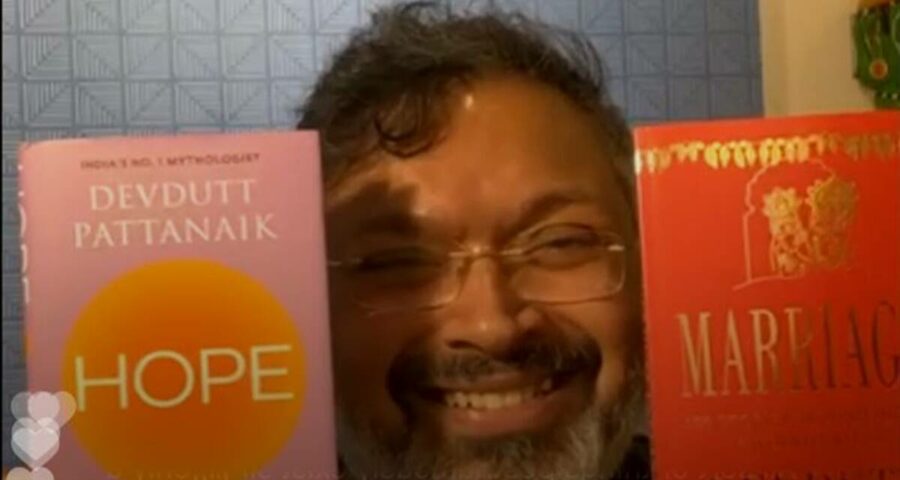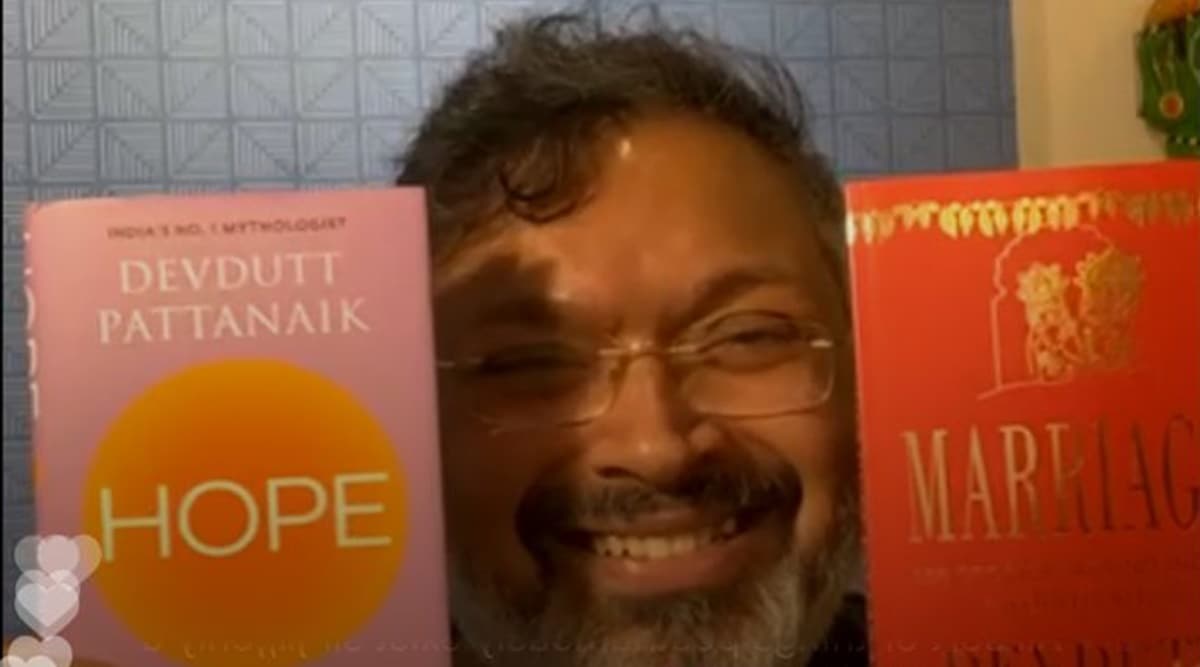Devdutt Pattanaik in his recently launched book, Marriage: 100 Stories Around India’s Favourite Ritual, looks at the fluidity of marriage and the concept of family in Hindu scriptures and folklore.
“I believe that the court exists to enable people to love,” asserted author, illustrator and mythologist Devdutt Pattanaik championing the cause of same-sex marriage and arguing that the Hindu culture must be understood from beyond the pigeonhole lenses of the Left and the Right.
In a conversation on Instagram with InUth Editor Premankur Biswas, Pattanaik said: “The courts have to allow the LGBTQ+ children to settle. Religion failed them, castes failed them, but the courts cannot fail them. Change cannot happen overnight, but the court must kick-start the process.” Given the Delhi High Court’s upcoming hearing on the recognition of same-sex marriage following the reading down of Section 377, Pattanaik asked: “If a young man wants to spend his life with another man and wants to pass on his property to that man, why would the court have a problem with that? Are they against people’s freedom?”
“The Government of India is saying that love doesn’t matter, only men and women can marry. If you have sex outside of marriage, that’s also a problem. But to a gay and lesbian couple, it’s saying, ‘you can have sex but you cannot marry.’ That’s a very weird idea. You’re basically saying that these human beings can have a sexual relationship and not a loving, social relationship,” he added.
A post shared by The Indian Express (@indianexpress)
The Centre has raised objections to same-sex marriage stating that marriage in India necessarily depends upon “age-old customs, rituals, practices, cultural ethos and societal values.” However, Pattanaik in his recently launched book, Marriage: 100 Stories Around India’s Favourite Ritual, looks at the fluidity of marriage and the concept of family in Hindu scriptures and folklore.
For instance, there’s a single father, Rishi Kaanva adopting Shakuntala, or the six Kritikas raising Kartikeya. “The fact is, Indians are used to seeing diverse ways in which the gods are talking to us. They’re not following heteronormative principles at all. They’re not following patriarchal systems in ritual contexts,” Pattanaik says.
“Both the Left and the Right try to pigeonhole Hinduism into a very strange thing. The Left will only look at it through a lens of caste. The Right will only look at it through the lens of Brahminical supremacy. These are very limited ways of understanding Hinduism,” Pattanaik argued.
Giving examples of the amalgamation of different rituals into a marriage ceremony, such as the mangalsutra from South India, the sindoor from the Harappa, and the saptapadi from the Vedas, Pattanaik, explained, “The unique thing about Hindu culture is that you will never find standardisation. It’s always customised to the context.” He added: “So, if the culture is diverse and dynamic, the law also should be diverse and dynamic.”
Source: Read Full Article


